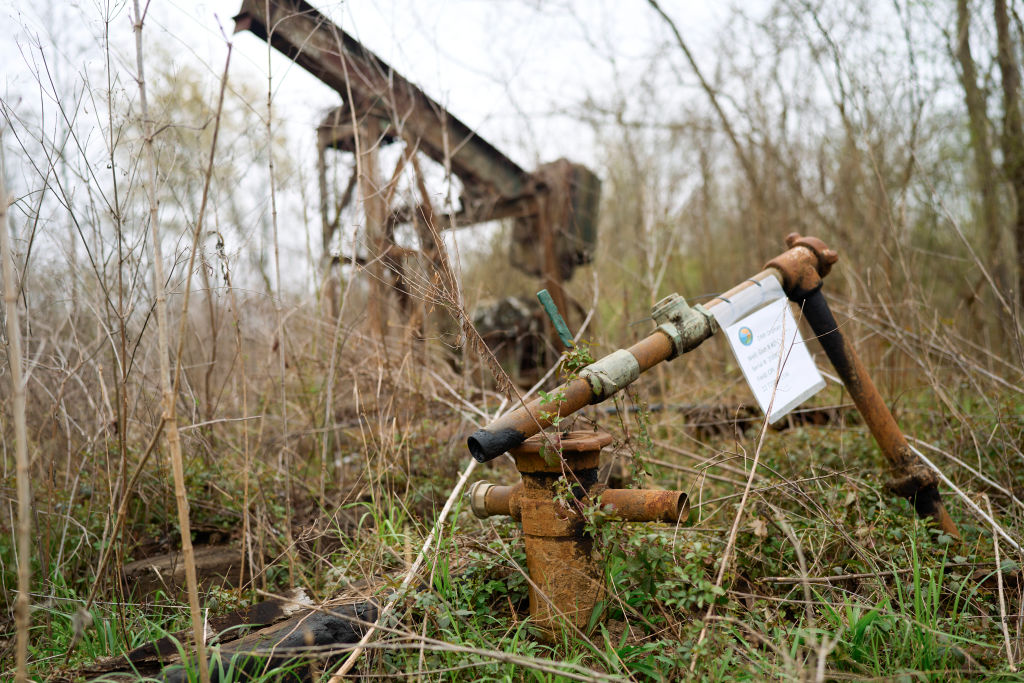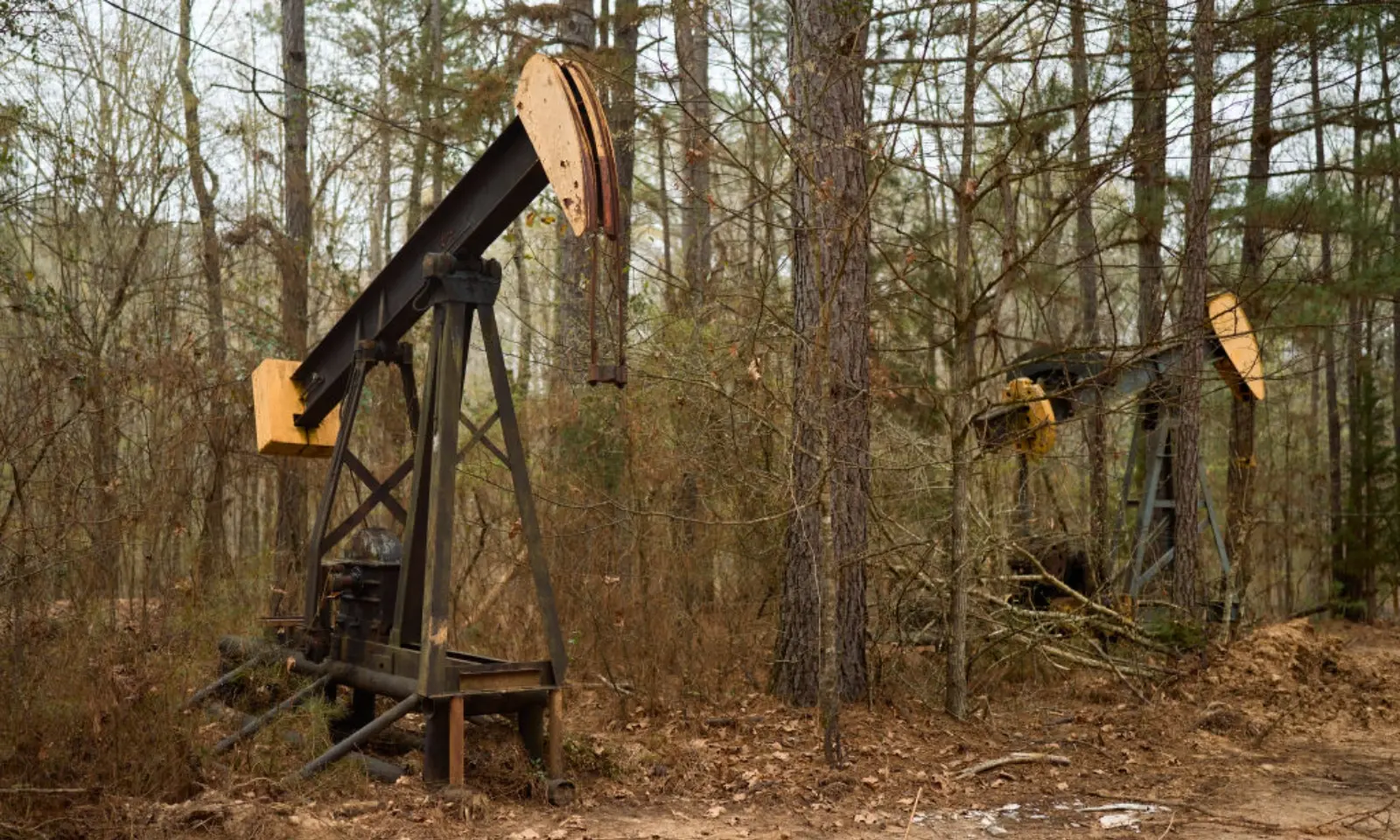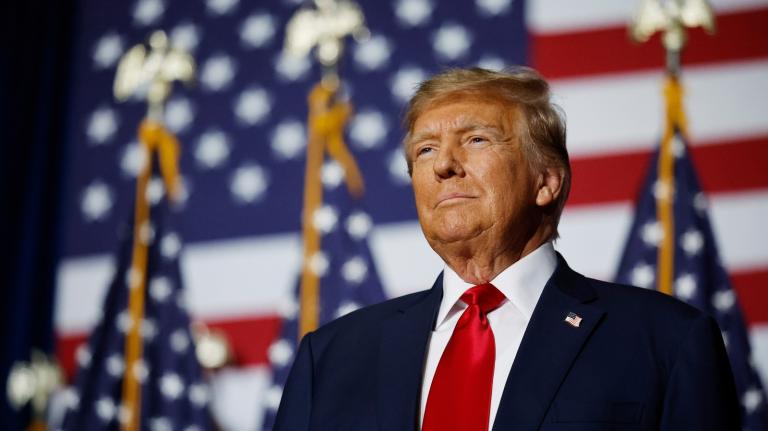The rules for oil and gas extraction on public lands have been stagnant for decades. Oil and gas companies have paid 12.5 percent in royalties to the federal government for drilling on public lands for more than a century, significantly lower than the rates many Western states charge. Companies must also post bonds, financial instruments that guarantee taxpayers aren’t left holding the bag for environmental cleanup if a driller goes bankrupt. But those bonds were set in 1960 at $10,000 per lease, a small fraction of the true cost of plugging and cleaning up oil wells that businesses leave behind.
Good governance groups and environmentalists have long argued that these rules have functioned as a subsidy for fossil fuels, shortchanging taxpayers and encouraging oil and gas extraction at a time when the planet is warming at a dangerous rate. The Biden administration is now attempting to correct that imbalance.
On Thursday, the Interior Department announced a sweeping set of reforms aimed at protecting public lands, saving taxpayers money, and holding oil and gas companies accountable for environmental cleanup. The new proposed rule hikes the minimum royalty rate to 16.7 percent, raises the minimum bid for leases from $2 per acre to $10 per acre, and increases the minimum bond from $10,000 to $150,000 per lease. The rule also prioritizes leasing in areas where oil and gas infrastructure already exists, leaving more space for developing renewables, and adds protections for wildlife habitats and cultural sites.
“This proposal to update BLM’s oil and gas program aims to ensure fairness to the taxpayer and balanced, responsible development as we continue to transition to a clean energy economy,” said Tracy Stone-Manning, the director of the Bureau of Land Management, in a press release. “It includes common sense and needed fiscal revisions to BLM’s program, many directed by Congress.” (The Inflation Reduction Act, Biden’s signature climate law, mandated higher royalty rates and minimum bids.)
When an oil and gas well reaches the end of its life, it needs to be properly plugged and decommissioned. By pouring concrete down a well, operators ensure that stray methane and salt water don’t bubble up to the surface and contaminate the land and air. But oil and gas companies sometimes go under, walk away from their cleanup responsibilities, and abandon wells. These “orphan” wells have been major headaches for public land managers.
In such situations, bonds collected by the federal government are supposed to help cover cleanup costs. But since at least 1960, the BLM has required $10,000 per lease and $25,000 for multiple leases in a state. Since each lease can contain multiple wells, the government is often left with just a few thousand dollars or less to plug a single well even though the cost of plugging one on federal lands can range between $20,000 and $140,000.
As a result, leaky abandoned wells dot the country’s public lands. The Department of Interior estimates that there are about 15,000 such wells on federal lands. In 2021, Congress appropriated $4.7 billion to clean up the mess, and the Interior Department has disbursed more than $1 billion of that amount to states and tribes. The Interior Department’s new proposal “aims to prevent that [financial] burden from falling on the taxpayer in future years,” the agency noted in a press release.
Environmental groups had a mixed response to the news. Those that had been calling for reforms to the leasing program applauded the changes noting that they were “long overdue” and “common sense.” But many also noted that fiscal reforms alone weren’t sufficient to tackle the climate effects of oil and gas extraction and called on the Biden administration to wind down leasing altogether. The environmental nonprofit Center for Biological Diversity said the proposal is “cowardly” and that the Biden administration is “blowing an opportunity to end oil and gas extraction on public land as the world reels from one climate catastrophe to the next.”
“While these rules are helpful, the Biden administration’s proposal continues with the climate-destroying practice of leasing federal lands for drilling, which is entirely out of sync with the administration’s climate goals,” said Robert Weissman, president of Public Citizen, in a statement.




